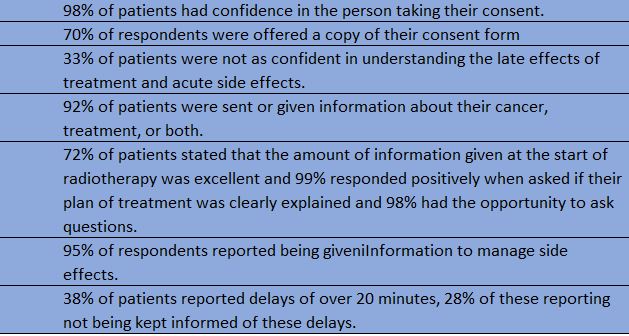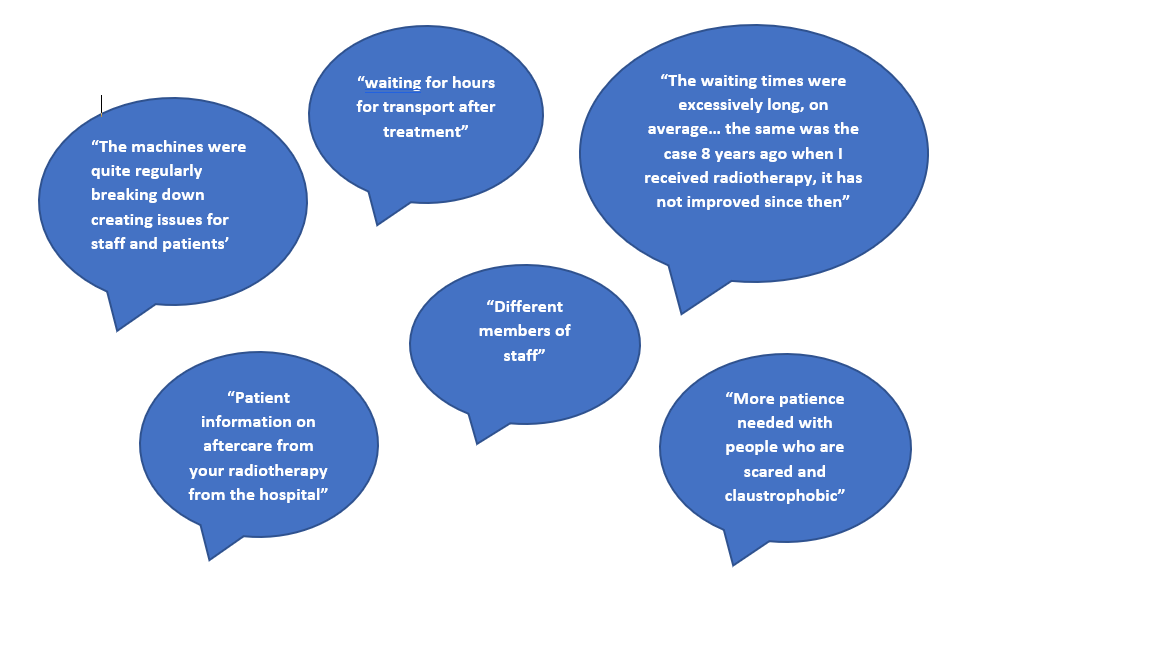The patients’ perspective; A radiotherapy patient experience survey in the North West of England.
Daniel Hutton ,
United Kingdom
PO-2312
Abstract
The patients’ perspective; A radiotherapy patient experience survey in the North West of England.
Authors: Daniel Hutton1, Paul Booker2, Shelley Shuttleworth3, Thomas Hall4, Michelle Cain5, Tony Murphy4, Lesley Woods5, Daniel Saunders6
1The Christie NHS FT, Radiotherapy, Manchester, United Kingdom; 2Lancashire Teaching Hospitals, Radiotherapy, Preston, United Kingdom; 3Lancashire Teaching Hospitals, Physics, Preston, United Kingdom; 4NW Radiotherapy ODN, NW Radiotherapy ODN, Manchester, United Kingdom; 5Clatterbridge Cancer Centre, Radiotherapy, Liverpool, United Kingdom; 6The Christie, Clinical Oncology, Manchester, United Kingdom
Show Affiliations
Hide Affiliations
Purpose or Objective
Quality of radiotherapy treatment is conventionally assessed by technical aspects and medicalised outcomes. Radiotherapy is becoming increasingly data informed with resources such as the radiotherapy dataset and other various outcome measures. It is essential, as the big data jigsaw is assembled, that the patient voice is heard, ensuring we capture how services are delivered by professionals and received by patients.
Consequently, there is increasing interest in capturing patient experience measures. Regional and national approaches would support benchmarking of services of a similar and configuration.
Material and Methods
All patients finishing a course of radiotherapy in a 1-month period were invited to take part in the survey via text message from their radiotherapy provider. Additionally, posters with a QR code displayed within the radiotherapy department at all 7 radiotherapy sites in the northwest of England.
The questionnaire was adapted, by a multidisciplinary steering group, from the 2012 national radiotherapy survey - considering the patient pathway from consent to completion of radiotherapy.
Quantitative data was analysed to establish patterns or trends, thematic analysis of free text responses was conducted.
Results
Responses were received from 653 patients across the 3 radiotherapy providers in the Northwest of England, providing a response rate of 21.1%. 90% of responses were received via text message route with the remaining 10% via the QR codes.

Thematic analysis of responses yielded 5 themes; logistics, information, operational, environment and holistic – each providing rich data on positives and areas for improvement, a selection of quotes can be found in table 1. An overarching theme related to patients’ low expectations and making a distinction between the professionals, the organisation and also the wider health care system.

Conclusion
The results, reassuringly, indicated that the vast majority of patients experienced high quality treatment and care during their radiotherapy. However the responses do indicate some areas for focus and improvements, it is therefore important to understand the distinction between patients’ expectations and priorities that professional have.
This regional survey starts to capture what people receiving radiotherapy expect from the system and the professionals delivering their treatment and care.
The survey responses make a case for regular review and audit of the patient experience, with a key recommendation being a national radiotherapy patient experience survey.